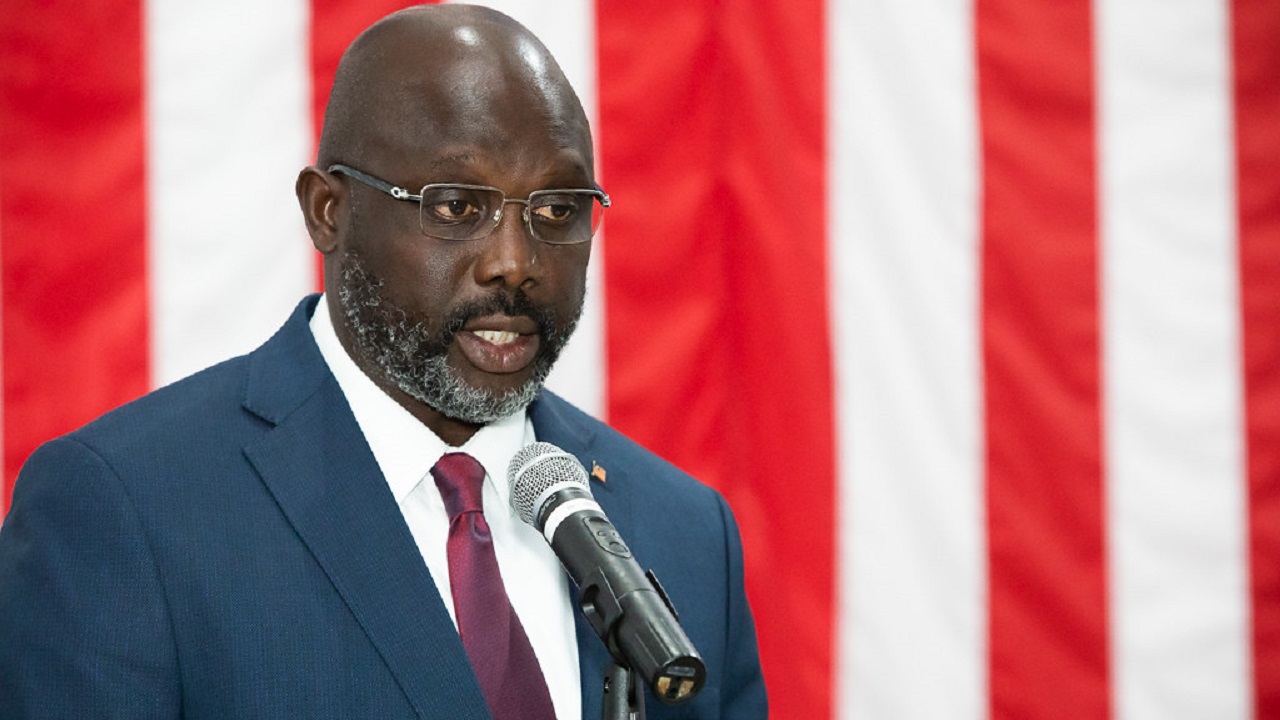When Liberia’s President George Weah arrived in New York this past weekend, he may have expected to be met with the same pomp as every other head of state arriving to attend the United Nations General Assembly. Instead, he and his delegation found themselves detained at John F. Kennedy Airport for hours while immigration and customs enforcement officials treated them as ordinary travelers rather than VIPs. It was a purposeful slight; U.S. frustration with Weah has grown steadily.
Special Kinship Aside
The United States feels a special kinship with Liberia, a nation founded by freed American slaves 200 years ago. While Liberia weathered two civil wars between 1989 and 2003, successive U.S. administrations worked to help Liberians regroup and recover. In 2011, President Ellen Johnson Sirleaf and activist Leymah Gbowee both shared the Nobel Peace Prize for their contributions to “peace-building” and “non-violent struggle.” There was general optimism that Liberia’s path to peace and prosperity would continue when football star Weah won the presidency in 2017 and assumed office in the first week of the new year.
In hindsight, Weah’s football career should have been a red flag. While talented, his teammates in various African clubs and subsequently in AC Milan never elected him captain; he simply was not a leader of men.
The Leader of Liberia Isn’t Leading
As Liberia’s president, he has disappointed. His economic stewardship has gone nowhere. He failed to fulfill his legal obligation to set up a war and economic crimes tribunal. Corruption now spins out of control and threatens to undermine Liberia’s tenuous stability and reverse its democratic progress. While war criminals go free, Weah has used the judiciary spuriously to stymie political competitors like Alexander Cummings, a widely respected businessman and philanthropist with a squeaky clean reputation.
Last February, President Joe Biden sent a special presidential delegation to ceremonies commemorating the arrival of the first free black Americans to what would become Monrovia, the capital named after U.S. President James Monroe. Delegation head Dana Banks used her speech to caution Liberia about the consequences of unchecked corruption. Weah ignored the warning. When the U.S. Treasury Department lost patience and sanctioned senior Liberian officials under the Global Magnitsky Act, Jefferson Koijee, Monrovia mayor and close Weah ally, angrily rejected any reform. While the United States is consistent and by far the largest donor nation to Liberia, Weah’s government sided with the Chinese Community Party as U.S. House Speaker Nancy Pelosi’s visited Taiwan.
Arrival Met With Complications
Back to Weah’s arrival: After finally clearing customs at Kennedy Airport, Weah found himself without any security escort to Manhattan. He then discovered that the State Department issued him and his delegation only C2 visas that restricted Weah and his entourage “to the United Nations Headquarters District” and forbade any travel outside the district until his departure to the airport for his return trip. The regulation defines the district as the “area lying within a twenty-five-mile radius of Columbus Circle.”
This is an extraordinary signal of displeasure and lack of confidence in Weah’s regime and his efforts to subvert democracy. In effect, the State Department is putting Liberia in the same category as Iran and Cuba. It is to the credit of Secretary of State Anthony Blinken that he is refusing to accept Weah’s democratic backsliding and respects the Liberian people enough to prioritize the democratic system over the ambitions of one man whose commitment to democracy appears to have ended with his first election.
Certainly, Liberians deserve better. Weah and his delegation are free to enjoy their hotel and attend the United Nations, but they should not treat Manhattan as a shopping junket while they neglect ordinary Liberians. At the same time, U.S. policy should go further. The broader international community must observe and guarantee the sanctity of elections so that Weah does not undermine the ballot, and both the United States and Europe should outline the investment and partnership in which they are willing to engage should Liberians elect a leader who places rule-of-law above personal enrichment.
Now a 1945 Contributing Editor, Dr. Michael Rubin is a Senior Fellow at the American Enterprise Institute (AEI). Dr. Rubin is the author, coauthor, and coeditor of several books exploring diplomacy, Iranian history, Arab culture, Kurdish studies, and Shi’ite politics, including “Seven Pillars: What Really Causes Instability in the Middle East?” (AEI Press, 2019); “Kurdistan Rising” (AEI Press, 2016); “Dancing with the Devil: The Perils of Engaging Rogue Regimes” (Encounter Books, 2014); and “Eternal Iran: Continuity and Chaos” (Palgrave, 2005).

